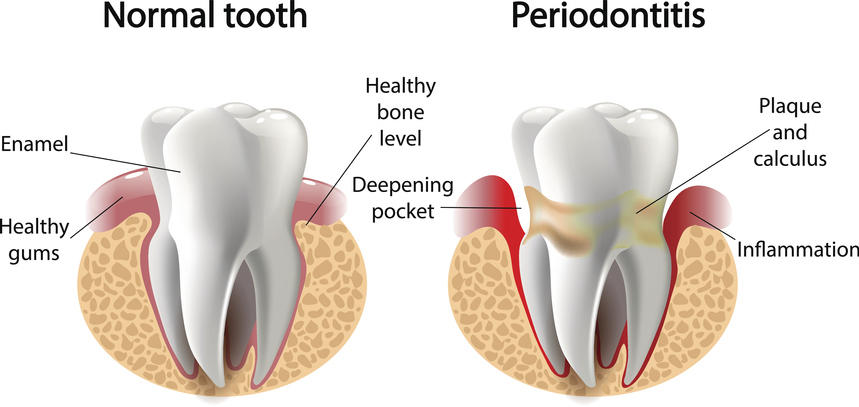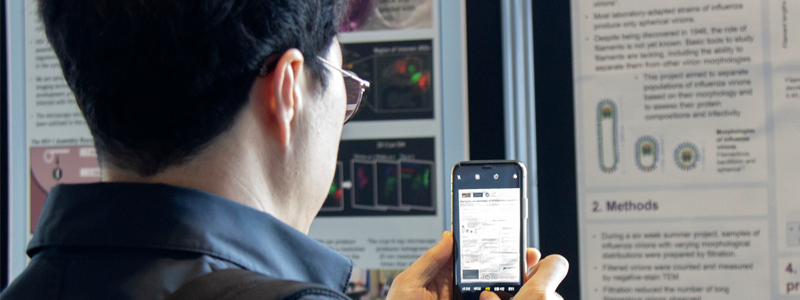Periodontitis: the irreversible gum disease
Posted on September 24, 2020 by Raphael Peter Galleh
In this blog, Raphael Galleh, Doctoral Researcher at the School of Clinical Dentistry, University of Sheffield, discusses his research into the microbiology of gum disease. Raphael presented his poster ‘Testing for novel inhibitors of periodontitis-associated sialidases’ at the Early Career Microbiologists' Forum Online event this July.
Gum disease is a common condition characterised by the inflammation (swelling) of the gum (gingiva). This may lead to bleeding, especially when you brush your teeth; bad breath or bad taste. This is referred to as gingivitis and luckily, it is reversible.
Nevertheless, if gingivitis is left untreated, it may advance to a condition called periodontitis, which is a chronic inflammation of the gingiva. This affects the supporting tissues surrounding the teeth, thereby creating a deep gap between the gum and the teeth often referred to as 'periodontal pockets'.
Periodontitis can lead to bone damage and subsequent tooth loss. Sadly, chronic periodontitis is irreversible. The World Health Organization (WHO) recognises severe periodontitis as the 6th most prevalent disease of people globally. Periodontitis has been reported to affect more than 700 million people worldwide with adult individuals more at risks of losing their teeth as a result of the condition

.Factors such as smoking, poor oral hygiene, medications, illnesses or hormonal changes are the major cause of gum diseases. Another cause of periodontitis, which my research focuses on, is dental plaques (biofilms) formed by oral pathogens on the tooth surfaces (yellowish coloration in between teeth).
Oral pathogens such as Porphyromonas gingivalis, Tannerella forsythia and Treponema denticola often referred to as the red complex organisms (due to their involvement with severe forms of periodontal disease), are the main culprits involved in causing periodontitis. They do this by causing an imbalance (dysbiosis) in the normal oral microbiota. These bacteria also secrete enzymes such as the sialidases which break down sialic acids found at the terminal ends of host glycoproteins needed for cell-to-cell attachment, thereby affecting the integrity of the host oral cavity.
Periodontitis has also been linked to other systemic conditions including diabetes, cardiovascular diseases, cancer, hypertension, preterm birth, pneumonia and stroke. This may be due to the presence of these pathogens or their metabolic wastes finding its way into the bloodstream of the host.
Preventive measures of gum diseases include; maintaining good oral hygiene, plaque removal, stop smoking, avoid grinding your teeth, maintain good nutrition and regular visits to your dentist. In addition, my research is aimed at testing for synthetic and plant-derived compounds that target the bacterial enzymes (sialidases) as novel treatment for periodontitis.

